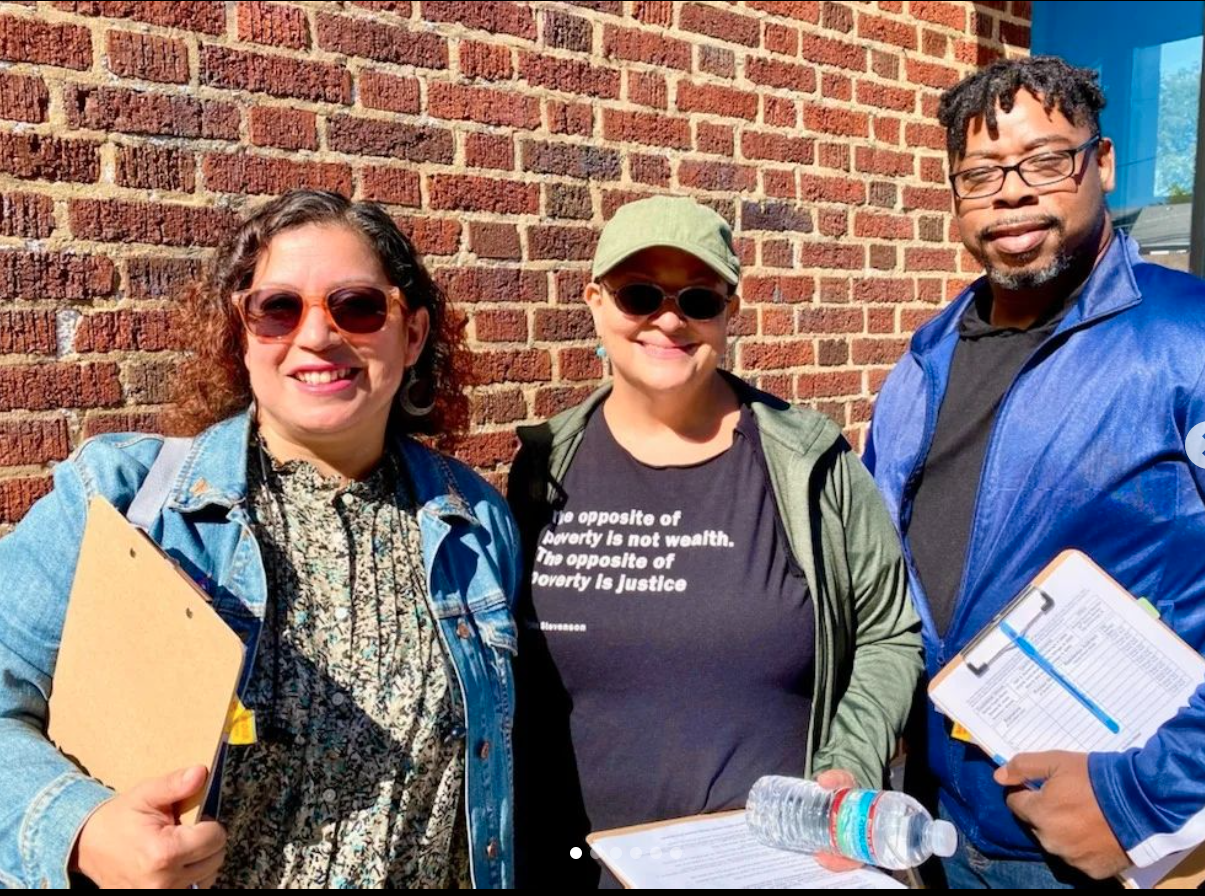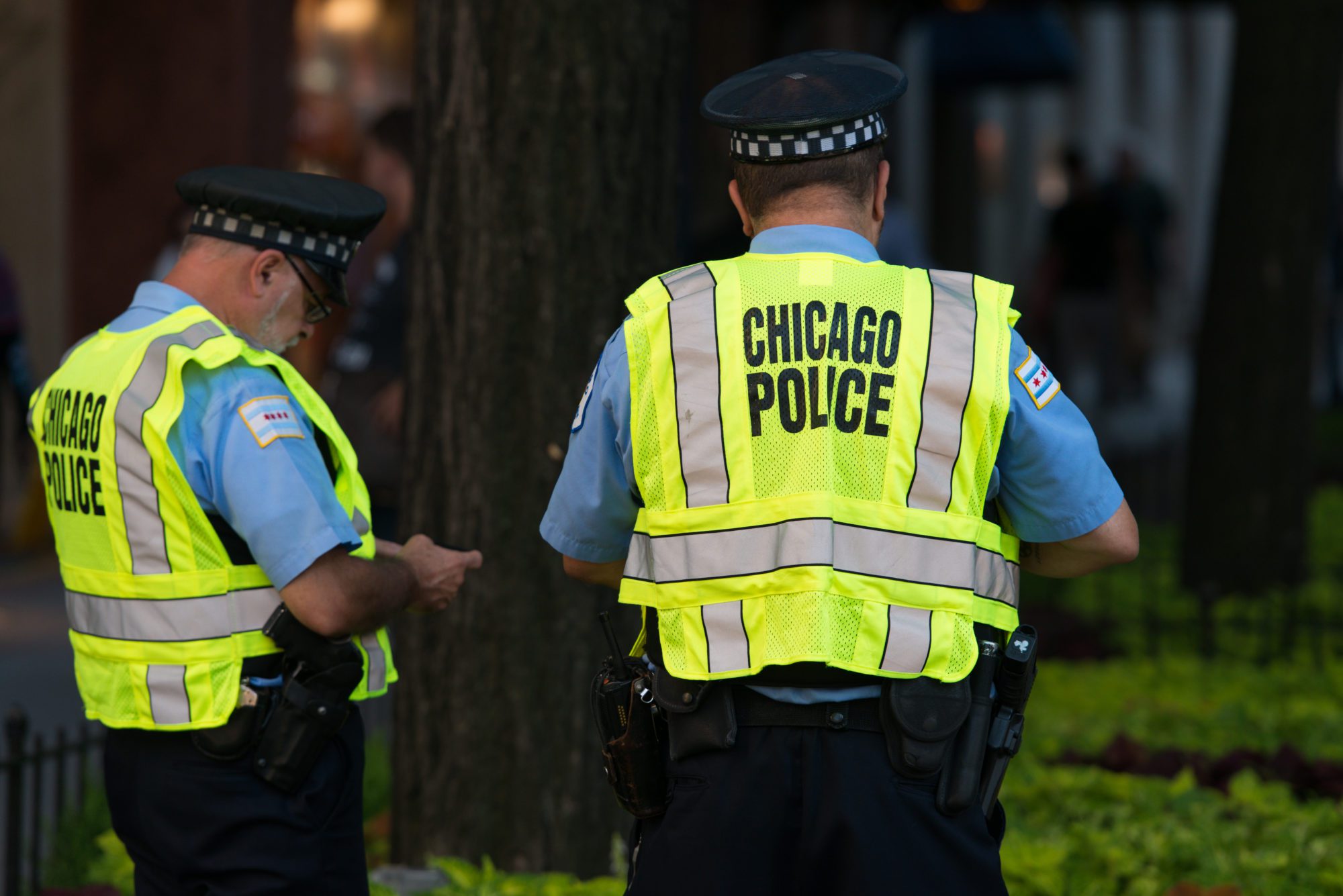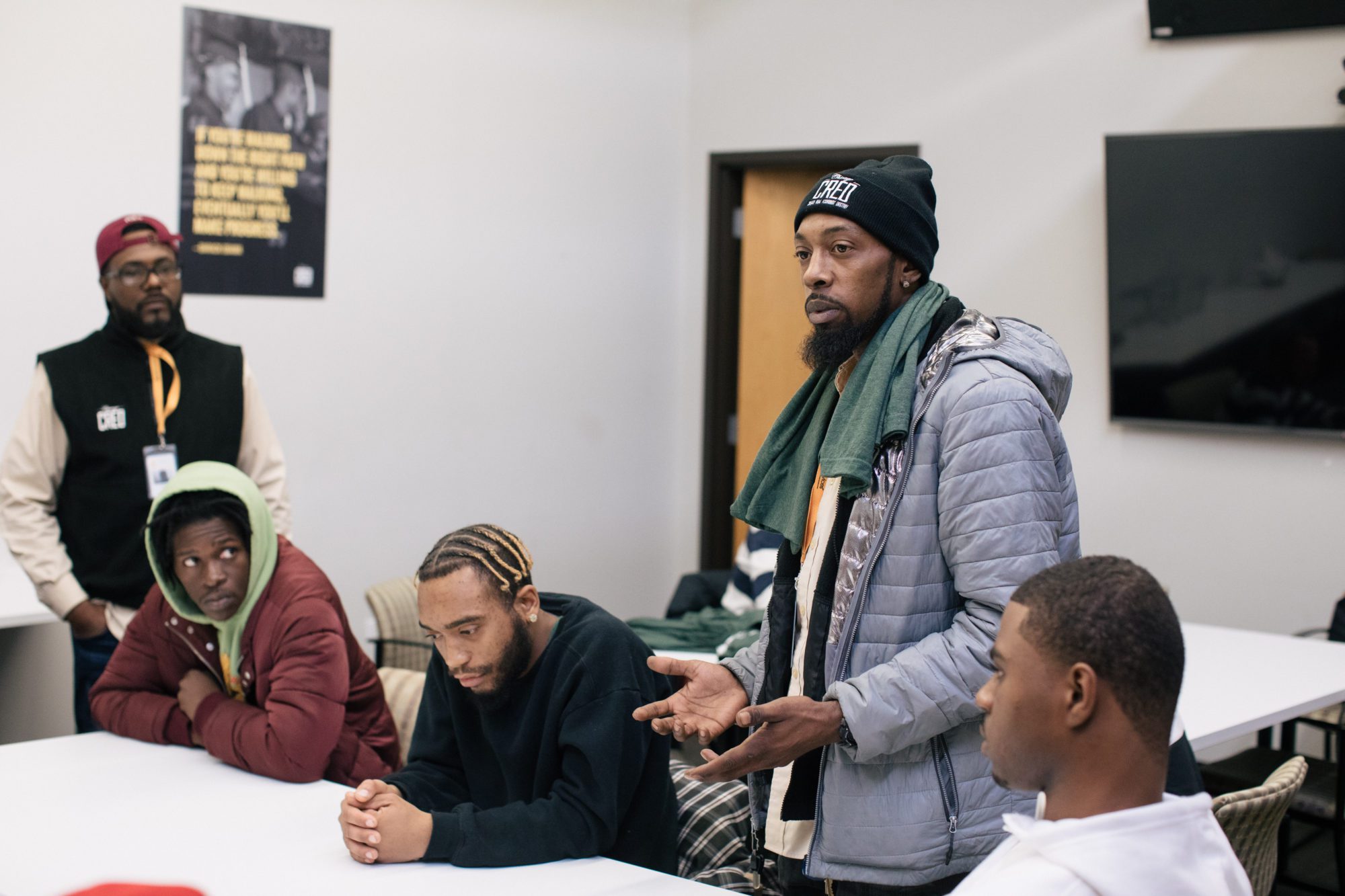Chicago’s Organizer Mayor
A former teacher and labor organizer won the mayoral election on Tuesday, after a campaign that signaled what a bottom-up approach to politics may mean for public safety.
| April 6, 2023
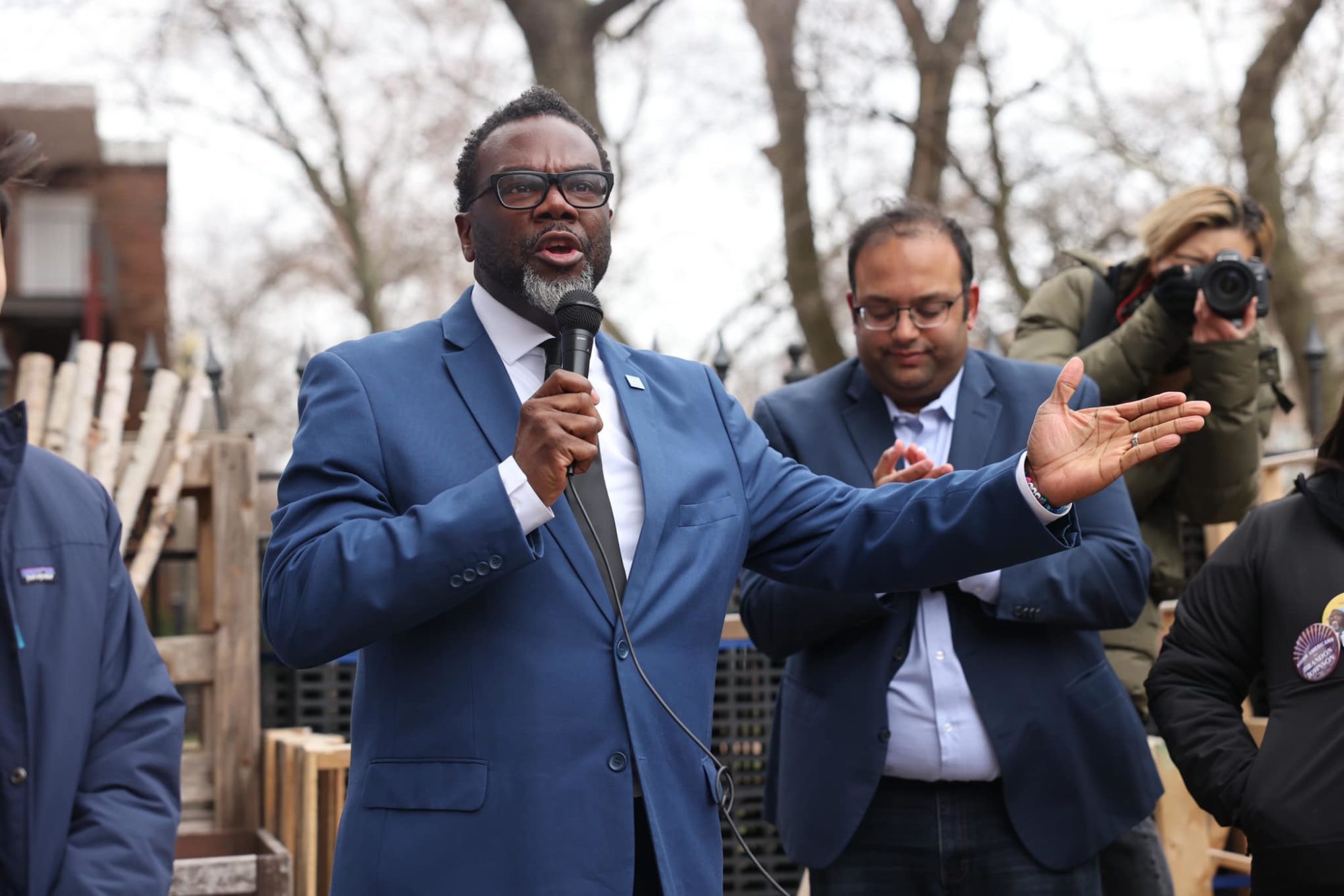
“God bless. Brandon Johnson isn’t going to be the mayor of this city,” Chicago Mayor Lori Lightfoot said in January when asked about the Chicago Teachers’ Union, a powerful left-leaning force in local politics, endorsing the Cook County commissioner challenging her.
Johnson is, in fact, set to become mayor of Chicago, after winning the election on Tuesday. A former teacher and labor organizer, he rode heavy support from the CTU and other unions to defeat a more conservative Democrat, Paul Vallas, by three percentage points. Lightfoot had already lost in the election’s first round in late February.
The runoff campaign was dominated by the two candidates’ starkly different visions for the future of Chicago, especially regarding crime and policing.
Vallas, the former CEO of Chicago’s school system, ran what The New Yorker dubbed a “cops and crime” campaign; buoyed with the backing of the local police union and the Chicago business community, he focused on promises to beef up policing as a response to an uptick in crime during the pandemic years. Vallas attacked Johnson over his past statements sympathetic to reducing the police budget, though Johnson walked those back this year. Johnson, meanwhile, seized the progressive lane and vowed to increase public services and community investments in housing, public education, mental health services, and job training, and he criticized Vallas for turning to the police as a catch-all solution.
The race garnered national attention as a sort of proxy for the future of policing and safety in American cities, with many interpreting Vallas’s first-place finish in February as a demand by voters for a more punitive approach to crime. Johnson, who on Tuesday carried the neighborhoods that have seen the most violence, used his victory speech to celebrate the success of an alternative answer.
“Tonight is the beginning of a Chicago that truly invests in all of its people,” Johnson said. “There’s more than enough for everybody in the city of Chicago… We finally will have a City Hall, a city government that truly belongs to the people.”
Underlying the vast differences between the two candidates’ platforms—and the proxy battle between the CTU and the Fraternal Order of Police—was also a clash between different styles of leadership best suited to carry them out.
Vallas is a technocrat who has spent decades managing large school bureaucracies from the top down with a goal of making them operate more like businesses, often directly in opposition with teachers’ unions. In his mayoral campaign, proposals to improve city institutions—especially police—revolved around placing competent leaders at the helm.
“They aren’t confident in leadership,” Vallas said during a recent live forum with Block Club Chicago, bemoaning retirements and vacancies in the Chicago Police Department. “So you restore morale, you slow the exodus.”
Johnson has a background in labor and organizing and he will be the first mayor that the CTU has endorsed—and the first to come up through the CTU itself. His path into politics began with organizing just ahead of the historic 2012 teachers strike, where teachers advocated for better public school conditions and against school privatization put in place by Vallas and his successors. It kicked off a decade of activism in which the CTU got involved in electoral politics and expanded its demands to include affordable housing, mental health services, public safety, and jobs.
Johnson participated in these efforts, including taking part in a hunger strike in 2016. The CTU leadership praised his mayoral campaign, which included many of the same priorities, goals, and strategies as his organizing work, as an extension of this work.
In the eyes of his supporters, Johnson’s background as an organizer is one of his key strengths.
“Brandon Johnson has stood shoulder to shoulder with Chicago movement organizations for decades,” Carlos Fernandez, executive director of Grassroots Illinois Action, a Humboldt Park-based community organization that endorsed Johnson, told Bolts. “He has marched with us, protested with us, and joined with community leaders to develop strategies to win the policies our communities need.”
Fernandez says the candidate consulted with them regularly as he developed his platform. “He also understands that solutions often don’t come from the top but with the people on the ground floor doing the work.”
This bottom-up model is reflected in Johnson’s policy proposals, which will require his administration to garner plenty of grassroots input on individual and community needs, and which call for strengthening both public services and their partnerships with civil society and violence intervention programs. One plank of his public safety plan is to reopen mental health clinics, and support the “Treatment not Trauma” model introduced by Alderperson Rossana Rodriguez that would send mental health professionals and EMTs as the response to certain emergency calls, rather than police. In rebuffing Vallas’s proposal to add more police to the L trains, he has proposed a violence intervention strategy that involves working with organizations like the Night Ministry, which already provides medical and other outreach services to unhoused people on the CTA.
He has also committed to funding violence interruption strategies directed at youth in particular, and cites Peace Book, an ordinance proposed last year that would create a directory of violence interruption leaders, resources, and strategies for young people to use.
Johnson’s first big test at coalition building came during the runoff campaign. After receiving 22 percent of the vote in the first round, he needed to make up a lot of ground to catch up with Vallas, who got 35 percent, and appeal to voters who chose other candidates. On Tuesday, he largely won the predominantly-Black precincts that previously went to Lori Lightfoot, and he split the areas that previously went to Jesus “Chuy” Garcia, who endorsed Johnson, last month.
The biggest boost for Johnson likely came from a roughly 30 percent increase in turnout among young voters, while turnout among older voters declined compared to February. Turnout overall was low, at about 33 percent of registered voters, roughly the same as in February.
Johnson now enters the mayor’s office in a heightened moment of flux for Chicago. He will preside over a city recovering from the economic effects of the pandemic, like many other US mayors. But Chicago is set for many more specific transformations. The school board is set to transition from being a fully mayor-appointed body to including some elected positions; the city needs a new police superintendent; and new police district councils were elected for the first time in February to work alongside other city bodies to increase citizen oversight of police.
All of these changes will happen against the backdrop of the local police union declaring long before the election that it would fight the incoming mayor.
John Catanzara, the president of the FOP, one of Vallas’s main allies, declared last month that Chicago should expect a mass resignation of police officers and “blood in the streets” if Johnson won. (Vallas condemned those comments, but Johnson was eager to tie his rival to the FOP throughout the campaign due to Catanzara’s ties to Republican politicians.)
Several progressives broadly aligned with Johnson also won aldermanic runoffs on Tuesday, adding to the council’s shift to the left Candidates supported by the CTU and other left-leaning organizations like Democratic Socialists for America prevailed, often against candidates with heavy support from the Democratic establishment, like Angela Clay and Leni Manaa-Hoppenworth in the 46th and 48th wards during the runoff.
Desmon Yancy, the incoming alderperson for Chicago’s 5th ward covering the Hyde Park and South Shore neighborhoods, is also an organizer who had a hand in creating the city’s new police district councils. This new effort at police accountability through community oversight was the result of decades of activism against largely-unchecked police brutality. The Empowering Communities for Public Safety coalition, which Yancy helped form, crafted the ordinance that led to the formation of 22 three-member councils in each of Chicago’s 66 police districts. These councils will hold monthly forums with members of the community, and also have a role in deciding police leadership. Chicago elected these council members in February, and many candidates who were targeted by the FOP, much like Johnson, prevailed.
“My organizing experience has been a sort of cattle wrangling,” Yancy told Bolts. “Thinking about how all these things are working for the good of the people in the community has been what my career has been centered in, so it’s a natural transition for me.”
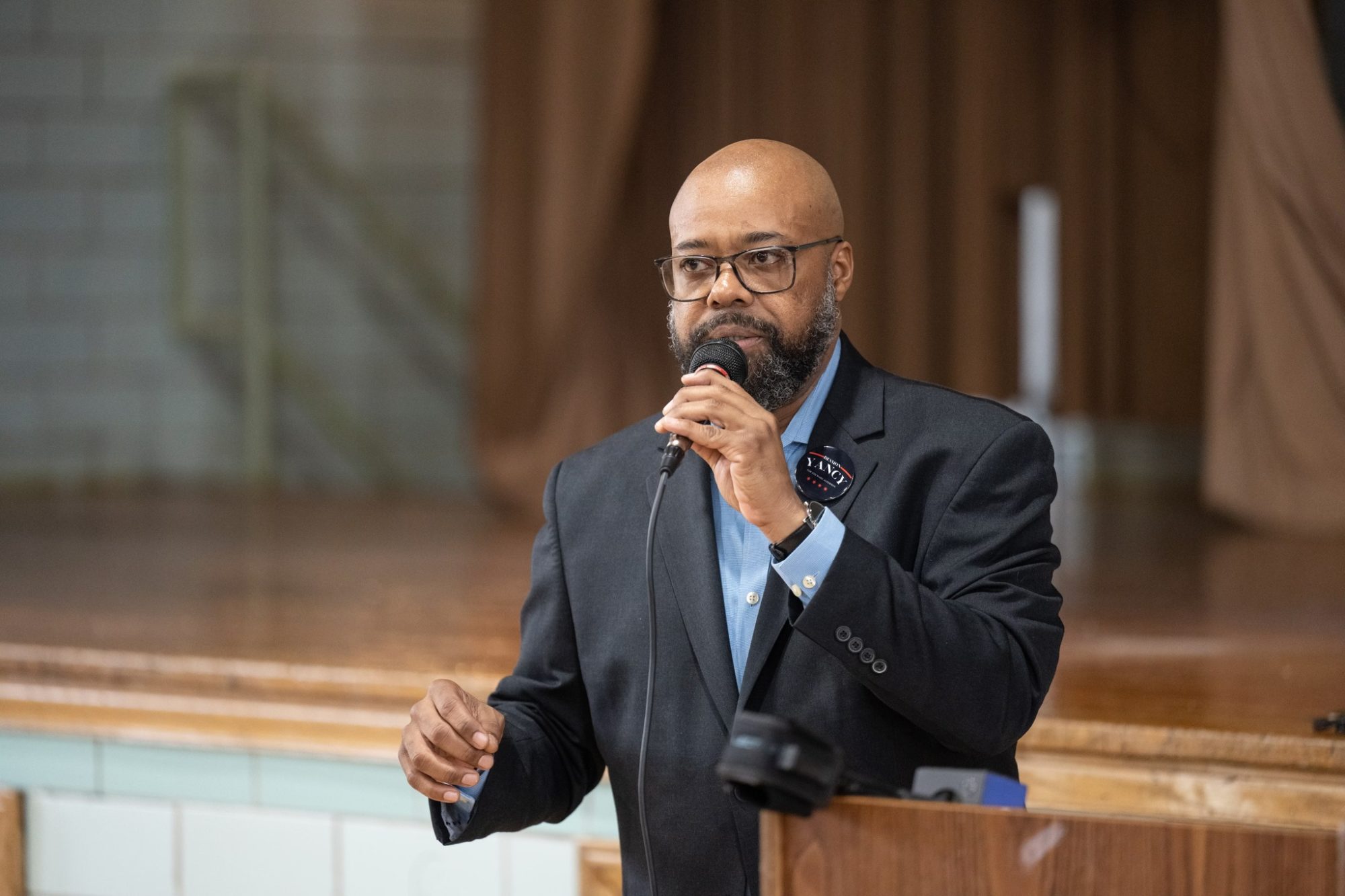
Yancy now says he looks forward to working alongside a fellow organizer in the mayor’s office.
“I can imagine going to Mayor Johnson and saying, ‘Here’s the work we want to be doing in the ward,’ and he’s going to ask, ‘Where’s the community involvement in this?’ And having already done the work, we don’t have to explain to him how the community got here,” he said.
Yancy hopes that a Johnson administration inspires other cities to follow suit in “having a leader who respects, and understands, and supports community voice, and having community leaders as aldermen helping to bring these honest, transparent conversations to transform our communities.”
He added, “To be in this moment today, it’s just exciting.”


